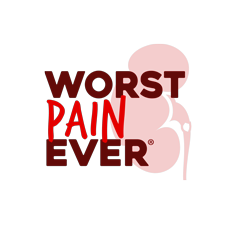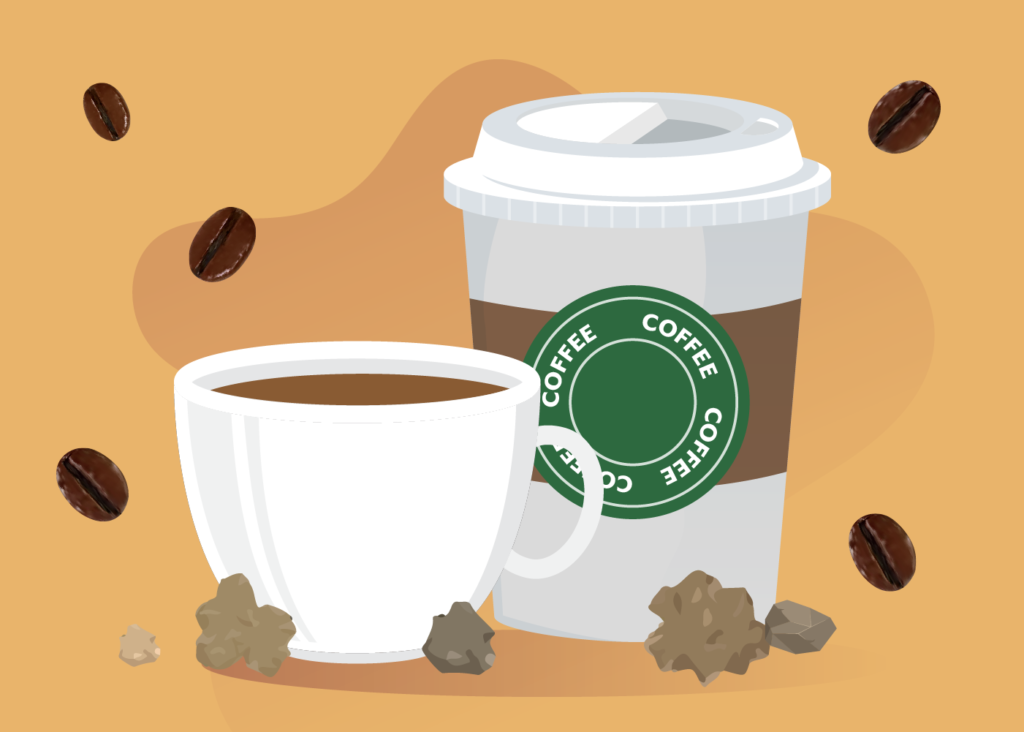Has the pain of kidney stones, second-guess your food and drink choices? Don’t worry, it’s normal!
Good news: You still can have your daily cup of coffee. We did a deep dive into the relationship between coffee and kidney stones and found out that coffee may be able to lower your risk of forming kidney stones1*!
*Disclaimer: This information is general dietary advice for calcium oxalate kidney stone formers for whom no specific causes are known. Stone formers with specific known diagnoses or causes should follow their providers’ recommendations.
What’s the difference between caffeine and coffee?
As it turns out, coffee and caffeine are completely different substances! Coffee contains caffeine, and caffeine is present in many of our favorite drinks, such as black teas.
Coffee is a beverage brewed from roasted beans while caffeine is a drug classified as a natural stimulant. Caffeine is the reason why you feel so much more energized after chugging a cup of coffee or an energy drink2!
Does coffee cause kidney stones?
There are some common myths around coffee and kidney stones, particularly about coffee causing kidney stones. However, there has not been any research conducted so far that shows that coffee increases the risk of kidney stone formation!
Does caffeine cause kidney stones?
Similarly, there has been no evidence showing that caffeinated drinks cause kidney stones. Although some teas may cause kidney stones to form, caffeine is not the reason behind stone formation. Research has instead found that the oxalate content in certain teas can contribute to calcium oxalate stone formation. Rather than worrying about the caffeine in your tea, you can lower your risk of forming calcium oxalate stones by steering clear of certain teas3.
I’ve heard that caffeine intake helps if I’m trying to pass a stone. Is that true?
Lucky for you, there is some truth in this! Once again, it all boils down to the caffeine present in coffee. Its natural diuretic properties4 help to increase your urine volume5, which makes it likely for you to pee more. That can be helpful if you’re trying to pass stone fragments or very small stones3.
Wait, so is caffeine or coffee good for kidney stones?
Sure seems like it! A study of 200,000 participants showed that caffeine can reduce the chances of calcium crystals adhering to the surface of the cells in the kidneys, specifically the renal tubular epithelial cells. This means that caffeinated drinks such as coffee could help to lower your risk of kidney stone formation6.
How about decaffeinated coffee?
In 2014, a study conducted by the American Society for Nutrition found that decaffeinated coffee can help to reduce the likelihood of kidney stone formation, though it has a smaller impact as compared to caffeinated coffees1. This shows that alongside caffeine, certain components in these beverages may possibly help to reduce the risk of kidney stones forming1! Although further research is required, researchers suggest that this could be due to their antioxidant or anti-inflammatory properties.
So should I drink more coffee and caffeinated drinks if I have kidney stones?
Even though research shows that the increased consumption of coffee and caffeinated drinks may help with the excretion of smaller kidney stones and prevent stone formation4, everything should be consumed in moderation. If you drink too much caffeinated beverages, you may end up dehydrated instead7– which will increase your risk of forming kidney stones!
In Summary
Feel free to drink your morning coffee or any other caffeinated drinks! Just remember that hydration is key when it comes to kidney stone prevention, so you still have to drink loads of water.
Sources:
- Ferraro, P. M., Taylor, E. N., Gambaro, G., & Curhan, G. C. (2014). Caffeine intake and the risk of kidney stones. The American journal of clinical nutrition, 100(6), 1596-1603.
- Glade, M. J. (2010). Caffeine—not just a stimulant. Nutrition, 26(10), 932-938.
- Siener, R. (2021). Nutrition and kidney stone disease. Nutrients, 13(6), 1917.
- Yuan, S., & Larsson, S. C. (2022). Coffee and caffeine consumption and risk of kidney stones: a mendelian randomization study. American Journal of Kidney Diseases, 79(1), 9-14.
- Maughan, R. J., & Griffin, J. (2003). Caffeine ingestion and fluid balance: a review. Journal of Human Nutrition and Dietetics, 16(6), 411-420.
- Peerapen, P., & Thongboonkerd, V. (2016). Caffeine prevents kidney stone formation by translocation of apical surface annexin A1 crystal-binding protein into cytoplasm: In vitro evidence. Scientific reports, 6(1), 1-13.
- Georgalas, V. L., Kalantzi, N., Harpur, I., & Kenny, C. (2021). The effects of caffeine on voice: a systematic review. Journal of Voice.





